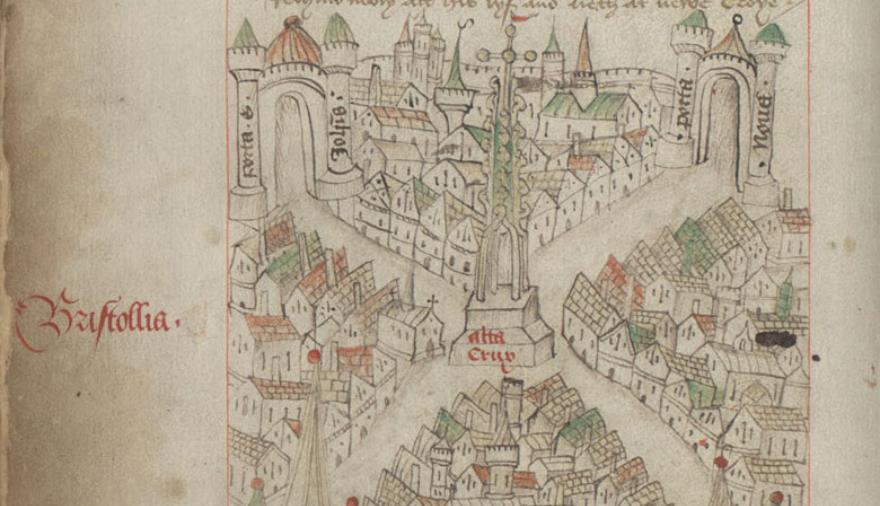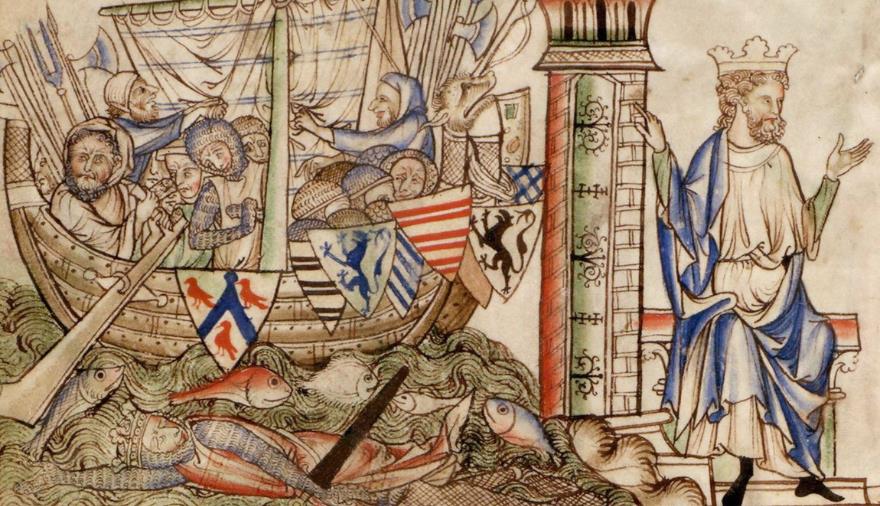CMS Research Seminars are held on Thursday afternoons and speakers are invited from across the UK and from abroad. In 2022-23, the CMS will have hosted 10 seminars by experts in archives and manuscript studies, history, art history, archaeology, and literature.
2023/4 Seminar Schedule
| 28 September 2023 | Maria Ruprecht | University of Bristol | The Multilingual Sources of Religious Vocabulary in Laӡamon’s ‘Brut’ |
| 5 October 2023 | Sigbjorn Sonnesyn | University of Bristol | Competing Spheres of Influence? Grosseteste’s De sphera and Medieval Astronomical Textbooks |
| 12 October 2023 | Kristina Olson | George Mason University | Dressing Babylon: Sartorial Biographies in Dante and Boccaccio |
| 19 October 2023 | Sophie Therese Ambler | Lancaster University | The English crown’s investigation of civil war combatants in the late thirteenth and early fourteenth centuries |
| 26 October 2023 | Diane Watt | University of Surrey | What the Paston Women Read |
| 2 November 2023 | Stephanie Wynne-Jones | University of York | What Every Medievalist Should Know about Africa (Grad Student Choice) |
| 30 November 2023 | Adrian Jobson | University of East Anglia | ‘And Forgive Them That Trespass Against Us?’: Lordship, Reconciliation and Rehabilitation in Post-Evesham England |
| 1 February 2024 | Bill Duba | University of Fribourg | Textual Criticism and Editorial Methodology: Coming to Terms with Medieval University Texts |
| 8 February 2024 | Philip Knox | University of Cambridge | Tucker Cruse Lecture |
| 22 February 2024 | Evelyn Welch | University of Bristol | Renaissance Skin |
| 29 February 2024 | Leslie Morgan | Loyola University (Baltimore) | The Geste Francor in and beyond the Italian Peninsula |
| 7 March 2024 | Virginia Blanton | University of Missouri—Kansas City | The Continental Afterlives of Syon Abbey Books |
| 14 March 2024 | Leslie Morgan | Loyola University (Baltimore) | Lapsus calami: Between Interlanguage and Paleography in Franco-Italian |
| 2 May 2024 | Grad Students | University of Bristol | Student Seminar — Flash Papers |
Thursday 7th December 2023
Literary Topographies and Historical City Maps: Bristol, Swansea, London at The Lord Mayor’s Chapel

About
FREE public talk by Prof Helen Fulton (University of Bristol) that is part of the Bristol650 anniversary celebrations. Everybody welcome!
The production of urban maps in Britain is largely an early modern phenomenon, arising out of the Tudor political project of creating a single nation called England that covered the whole of the island of Britain. Before then, medieval city descriptions formed verbal maps of towns which performed much the same function as cartographical maps. In the medieval project of mapping territory, whether visual or verbal, towns were major points of reference, standing as witnesses to historical and geographical claims of nation and empire. This talk will explore some classical and medieval urban descriptions with particular reference to the medieval cities of Bristol, Swansea and London. The medieval streets of each of these cities have recently been mapped in newly-published OS-style maps produced by the Historic Towns Trust, and the talk will use these maps to show how verbal descriptions can be turned into cartographic designs.
Book tickets here: https://www.eventbrite.co.uk/e/literary-topographies-and-historical-city-maps-bristol-swansea-london-tickets-662911394827
Thursday 25th April 2024
Bristol and Ireland in 1373 at The Lord Mayor’s Chapel

About
FREE public talk by Prof Brendan Smith (University of Bristol) that is part of the Bristol650 anniversary celebrations. Everybody welcome!
In 1373, Bristol became the first English town to receive a charter from the king, raising it to the status of a county. The grant testified to the town’s established and growing importance in the politics and economics of the kingdom and to the influence of its leading citizens. The fortunes of Bristol at this time were shaped by its response to two great challenges: plague and warfare. The Black Death had hit the town hard in 1348-49, and again in 1361, reducing its population from around 20,000 when the pestilence first arrived to around 12,000 by the early 1370s. Mortality on such a massive scale inevitably affected all aspects of life in the town, but it was clear that by the time the charter of 1373 was granted, Bristol’s economy was flourishing. In large part this was because it was a major beneficiary of King Edward III’s military endeavours against the French. Underpinning England’s financing of the Hundred Years War (which began in 1337) was the promotion of a new cloth-making industry in England, designed to destroy the economy of France’s ally, Flanders. By the end of the 1340s, Bristol was the leading exporter of English cloth, and this, along with the revival of the importation of Gascon wine from Bordeaux, garnered for its merchants huge profits and increasing political power. But Flanders and Gascony were far from Bristol. Much closer was its oldest trading-partner: Ireland. In 1373, the king’s representative in Ireland was Sir Robert Ashton, a native of Long Ashton, and this was just one of many ties that continued to bind Bristol to the Irish lordship. The nature and strength of those ties in 1373 is the subject of this talk.
This talk is FREE to attend and open to all. Please book your FREE ticket as the venue has limited capacity.
Book tickets here: https://www.eventbrite.co.uk/e/bristol-and-ireland-in-1373-tickets-662915396797
